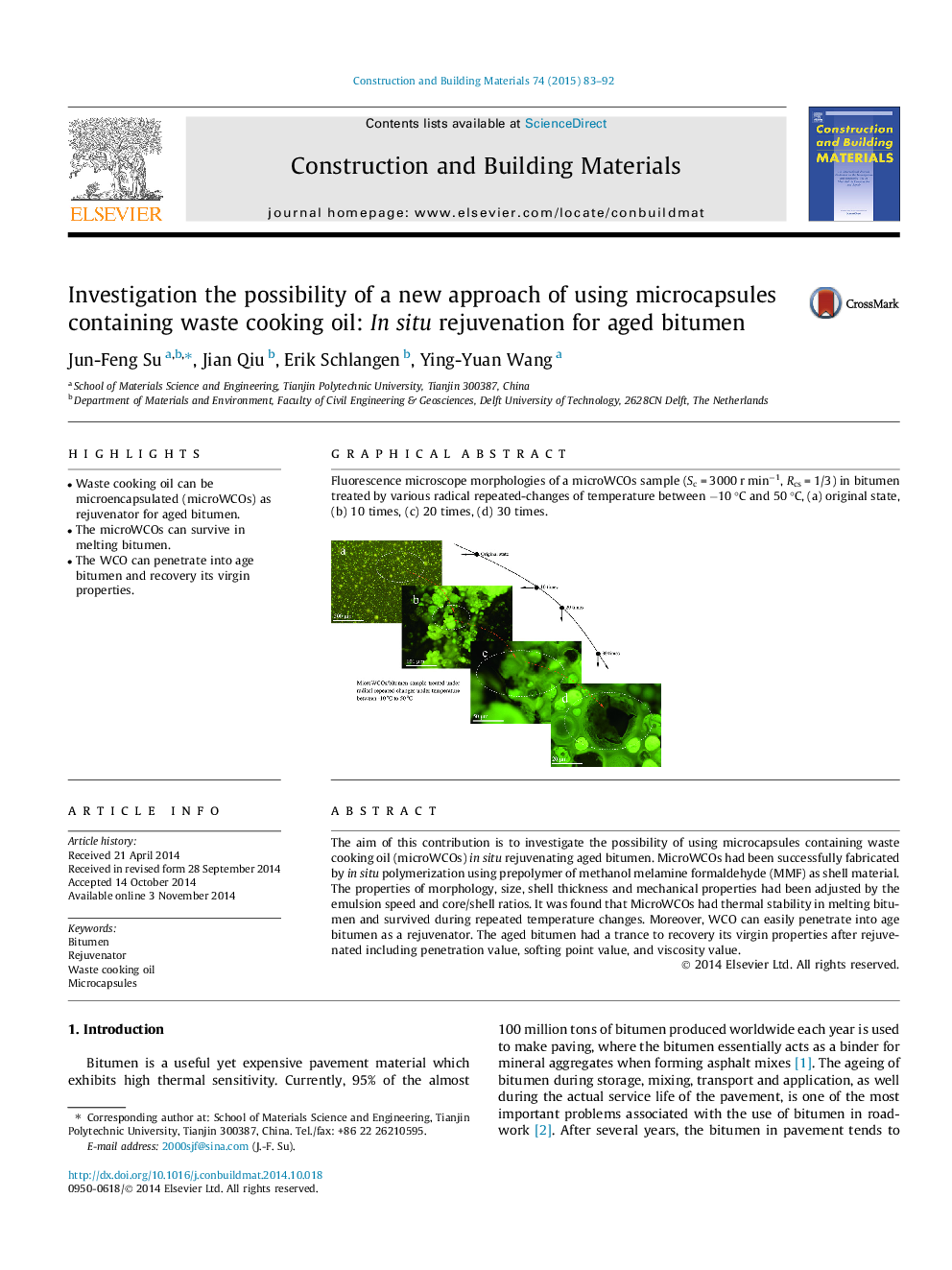| Article ID | Journal | Published Year | Pages | File Type |
|---|---|---|---|---|
| 257149 | Construction and Building Materials | 2015 | 10 Pages |
•Waste cooking oil can be microencapsulated (microWCOs) as rejuvenator for aged bitumen.•The microWCOs can survive in melting bitumen.•The WCO can penetrate into age bitumen and recovery its virgin properties.
The aim of this contribution is to investigate the possibility of using microcapsules containing waste cooking oil (microWCOs) in situ rejuvenating aged bitumen. MicroWCOs had been successfully fabricated by in situ polymerization using prepolymer of methanol melamine formaldehyde (MMF) as shell material. The properties of morphology, size, shell thickness and mechanical properties had been adjusted by the emulsion speed and core/shell ratios. It was found that MicroWCOs had thermal stability in melting bitumen and survived during repeated temperature changes. Moreover, WCO can easily penetrate into age bitumen as a rejuvenator. The aged bitumen had a trance to recovery its virgin properties after rejuvenated including penetration value, softing point value, and viscosity value.
Graphical abstractFluorescence microscope morphologies of a microWCOs sample (Sc = 3000 r min−1, Rcs = 1/3) in bitumen treated by various radical repeated-changes of temperature between −10 °C and 50 °C, (a) original state, (b) 10 times, (c) 20 times, (d) 30 times.Figure optionsDownload full-size imageDownload as PowerPoint slide
